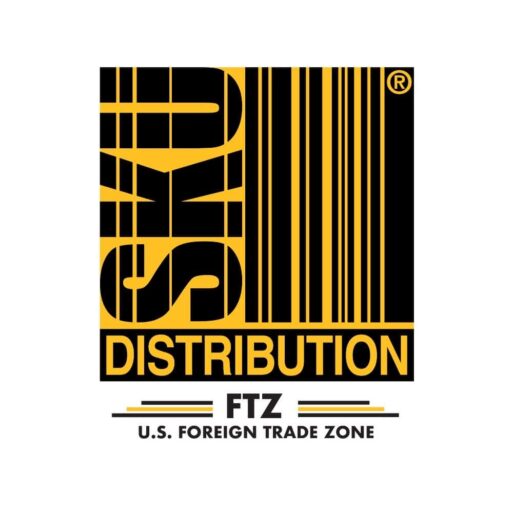For the small business owner, fast business growth may cause too much complexity and might indicate that it’s time to find a warehouse management provider. Orders need to be fulfilled fast, and there needs to be solutions which can scale to hold inventory and quickly send them out.
Options such as just-in-time production or drop shipping become infeasible without assistance. Customer experience also begins to suffer. To solve such a scenario, warehouse solutions might be the answer.
Warehouse management, or warehousing, is the practice of effectively storing physical inventory before it’s sold. Warehouse management providers can store physical inventory in an optimized fashion. This helps limit costs and ensure they can be quickly packaged and shipped off to customers (or point-of-sale locations).
In e-commerce especially, inventory is held by the brand until the customer places an order. In the early days of a firm’s growth, this might be manageable. But when the business starts to serve customers globally, the orders start to pile up. In which case, a warehouse becomes a necessary next step.
These warehouses help manage logistics, like shipping products out faster and from multiple locations. This ensures services such as expedited shipping or two-day delivery are still plausible despite a customer’s address being halfway across the globe.
In this piece, we’ll focus on warehousing and we will go through the key aspects of warehousing services—including its benefits, how it’ll work with e-commerce operations, and what to look for when choosing a warehousing solution.
What Does a Warehouse Do?
Warehouses carry out some key operations for a business:
1. Storage
The most basic function of warehousing is to store physical goods. This is both to hold physical inventory to meet customer demand and even to store goods that may not be ready to sell yet. In the meantime, the best warehouse management companies will also carry out quality control services.
2. Protection from Elements
Warehouses are generally designed to protect the valuable products stored there in preparation for order and shipping fulfillment from various outsourcing companies. This means they come with added features that ensure items are protected from fires, wear-and-tear, and theft.
3. Financing
Items stored in the product warehouse can be leveraged to take out loans. This may include loans from the warehouse keepers themselves or even from financial institutions that’ll issue out loans based on collateral warehouse receipts.
4. Packaging
Most warehouses come with the added benefit of handling the processing, grading, and packaging of items. Warehouse operations are designed to be executed quickly and effectively, all the while handling goods and products according to specific guidelines put in place by the business owner.
5. Price Stabilization
Warehouse management also helps in stabilizing prices. If certain commodities fall in prices during an off-peak time, this can be leveraged by the business to buy in bulk and store ahead of peak season when prices will rise again. As a result, warehouse operations companies can be a great tool in helping manage fluctuations in the market price for items.
The Two Main Components of Warehouse Management
Warehouse management isn’t just a physical warehouse space. In fact, it’s comprised of two main elements: warehouse management and a warehouse management system.
These together ensure successful warehousing for a business owner.
Warehouse Management
Warehouse management relates to the day-to-day operations that take place in a warehouse at a strategic level.
It’s the ‘management’ of the warehouse which involves operations like hiring the right staff, implementing the right technology, and establishing third-party relationships so that the warehouse can successfully store and move inventory as needed.
Spanning people, process, and operations – warehouse management is all about the effective end-to-end management of inventory. It’s about accepting inventory, storing it, and then completing order and shipping fulfillment processes while minimizing cost for the business owner.
These services play a key role in advising both large companies and small businesses on how to manage their inventory better. By helping the business better understand their customer supply and demand they can more accurately forecast how much needs to shipped from each warehouse.
This part of the process can considered the operational domain of warehouse management. It’s about getting a real-time view of the amount of inventory stored, how much it costs to store product, and whether space is optimized effictively in the warehouse.
Warehouse Management Systems (WMS)
Supporting warehouse management is an integral component known as the warehouse management system. It’s a software that provides all the tools needed for warehouse personnel to effectively manage the inventory in the warehouse and move it as needed.
It also helps ensure the owners of the inventory have complete transparency throughout the warehouse process. Businesses can view the level of inventory stored in warehouses and trigger actions automatically, such as having stock packaged and shipped to a customer or retail location.
Some of the best warehouse management systems will even optimize and automate many of the processes involved in a warehouse.
Benefits of Warehouse Management
1. Rapid Expansion
If a small business grows rapidly, the number one challenge will be rapidly scaling operations to meet the sudden growth. A warehouse management solution perfectly solves this challenge by handling this rapid growth using effective tools and techniques. Businesses can quickly outsource their storage and fulfillment processes and rapidly integrate their existing systems with a WMS to get things going quickly.
2. Managed Support
By using warehouse management services, a business is also gaining expert managed support that can advise owners on the right way to scale operations. Warehouse managers can leverage their economies of scale to lower a company’s unit economics and boost profitability.
3. Focus on Strategy and Brand
By utilizing warehouse management, a business can now focus its attention on more strategic areas such as improving the product or customer experience. The brand no longer has to worry about the after-sale processes as much and can instead focus on growth and generating demand. The fulfillment side can be left to the experts once more money is in the bank!
4. Spot Stocking
Spot stocking is another added advantage of warehouse management. With a network of warehouses that are managed by third-parties, businesses can rapidly expand their operations to stay competitive and fulfill shipping services more quickly. By utilizing warehouses spread across the globe that hold inventory for specific regions, product shipping times can be dramatically reduced.
How Warehouse Management Works for E-commerce Operations
Retail businesses have traditionally used warehouses with multiple store locations, but does it apply to e-commerce owners as well?
The answer is yes. Warehouse management is a perfect solution for e-commerce businesses that are looking to deliver their items when purchased by a customer rapidly.
A warehouse management service helps in the following ways for e-commerce owners:
Storing E-commerce Products
As an e-commerce store grows and there many different SKUs of products in vast quantities, there will be a drastic reduction in picking and inventory level accuracy. This can result in poor experiences where incorrect items are shipped out to customers.
With warehouse management, this issue is avoided as everything is tracked at the SKU level, and items are optimally stored and tallied. Systems are in place to quickly pick out the correct SKUs, and real-time integration ensures the e-commerce platform is getting accurate stock levels when customers are browsing online.
Handling Shipping and Receiving
Warehouse management is also designed to handle large complex shipping and receiving volumes. Items can be received at a warehouse and stored optimally for easy retrieval. Similarly, for shipping, warehouses have partnerships with major shipping carriers and can arrange workflows where these shipping carriers can directly pick up items from the warehouse and ship them to their destination. This is vital for a small business just getting used to increased orders.
Handling Returns
With running an e-commerce business comes the necessary practice of accepting returns. Warehouses are purpose-built for handling large volumes of returns directly from customers and can integrate with e-commerce platforms to provide updates on return statuses. They can also issue prepaid return labels, provide tracking information, and manage the refund process automatically on behalf of a business.
Things to Keep in Mind When Picking a Warehouse Management Provider
When it comes to picking a warehouse management provider, there are many options. It’s essential to choose one based on the unique needs of a business. Here are some tips to keep in mind:
Storage Costs
Warehouse management can be expensive and each provider does their pricing differently. Generally, the variable cost is dependent on the number of items a business would like to store in a given warehouse, and the space each item will take. Other times a warehouse will charge per SKU. It’s important to evaluate a provider based on which is more cost-effective for one’s business. If a company has many SKUs, but each SKU item doesn’t require much space – then a provider that charges by square footage, pallet, or shelf may be the better option. Receive a price quote for SKU Distribution by entering your business information.
Seasonality
Secondly, understand how seasonality plays into the warehouse management provider’s business needs. A provider with experience with business seasonality may be better adept at advising the business on how to manage their inventory. These warehouses may also be able to optimize how inventory is distributed across multiple warehouses. During low-demand seasons, inventory can be housed in cheaper warehouses and moved to more optimal high-demand ones when peak-season approaches.
What You Sell
There are warehouse management providers that specialize in operations for certain industries or categories. This means depending on what a business sells, it may make sense to pick providers that have bespoke processes and software that are dedicated to better manage certain types of inventory. For example, if the business sells food that needs refrigeration, then a temperature-controlled warehouse provider is needed as well as a license to handle food items.
Location
Location is very important when it comes to picking a provider, as the cost to have inventory moved around can be expensive. This applies both to receiving items as well as dispatching them to retail locations or customers. Choosing a warehouse management provider with multiple locations will help a business reach a large, spread out customer base. Likewise, picking a more rural warehouse can help save costs as they tend to price lower compared to those in big cities.
Warehouse Management Systems
Evaluating the technology used by a provider is also important. It is critical that a provider uses the proper system to ensure smooth operations and transparency for their clients. The ability to integrate seamlessly with existing technology operated by a business is paramount, as is whether the warehouse provider properly trains their employees on the software. This technology should also be evaluated to meet legal requirements and whether it is suitable to work with a company’s other partners. Warehouse management solutions should also be flexible enough to grow with changing technologies.
Additional services
Many warehouse management providers attempt to be competitive by providing additional services that go beyond their core area of delivery. This could be services such as kitting and assembly, cross-docking, direct-to-consumer shipping, and B2B fulfillment. It’s important to see if any of these are available and whether they are valuable enough to the business in enhancing its operations.
Takeaway
Warehouse management is a necessity as a business starts to grow. It can go a great deal in ensuring manageable growth and that there is no drop-in service quality to customers when growth happens. The biggest plus of warehouse management is that it allows a business to focus on its customers and product while leaving the fulfillment side of things to the experts. So what are you waiting for? Contact SKU Distribution today so we can take care of your international and domestic fulfillment needs.
Related: What is a Fulfillment Center?



